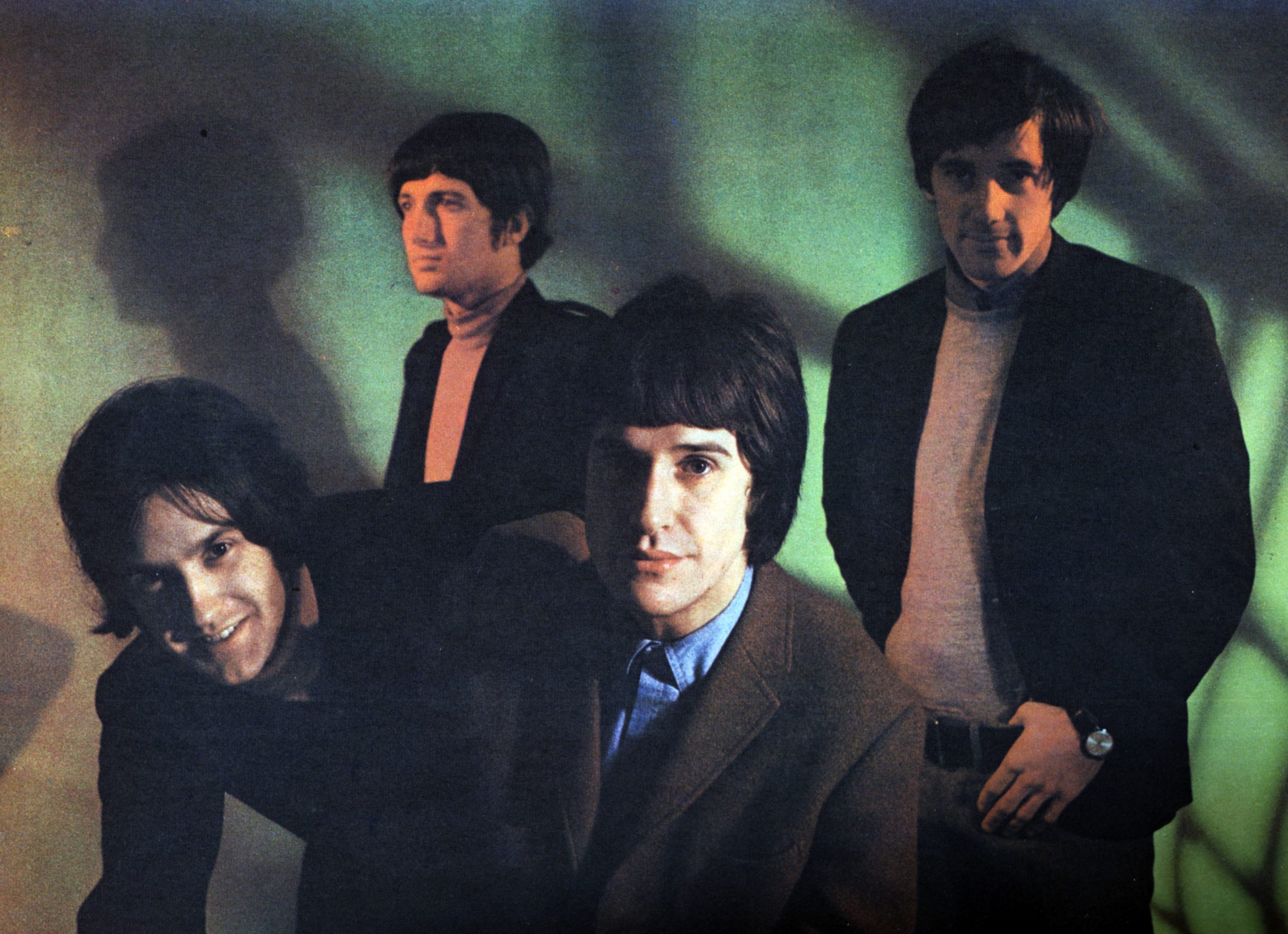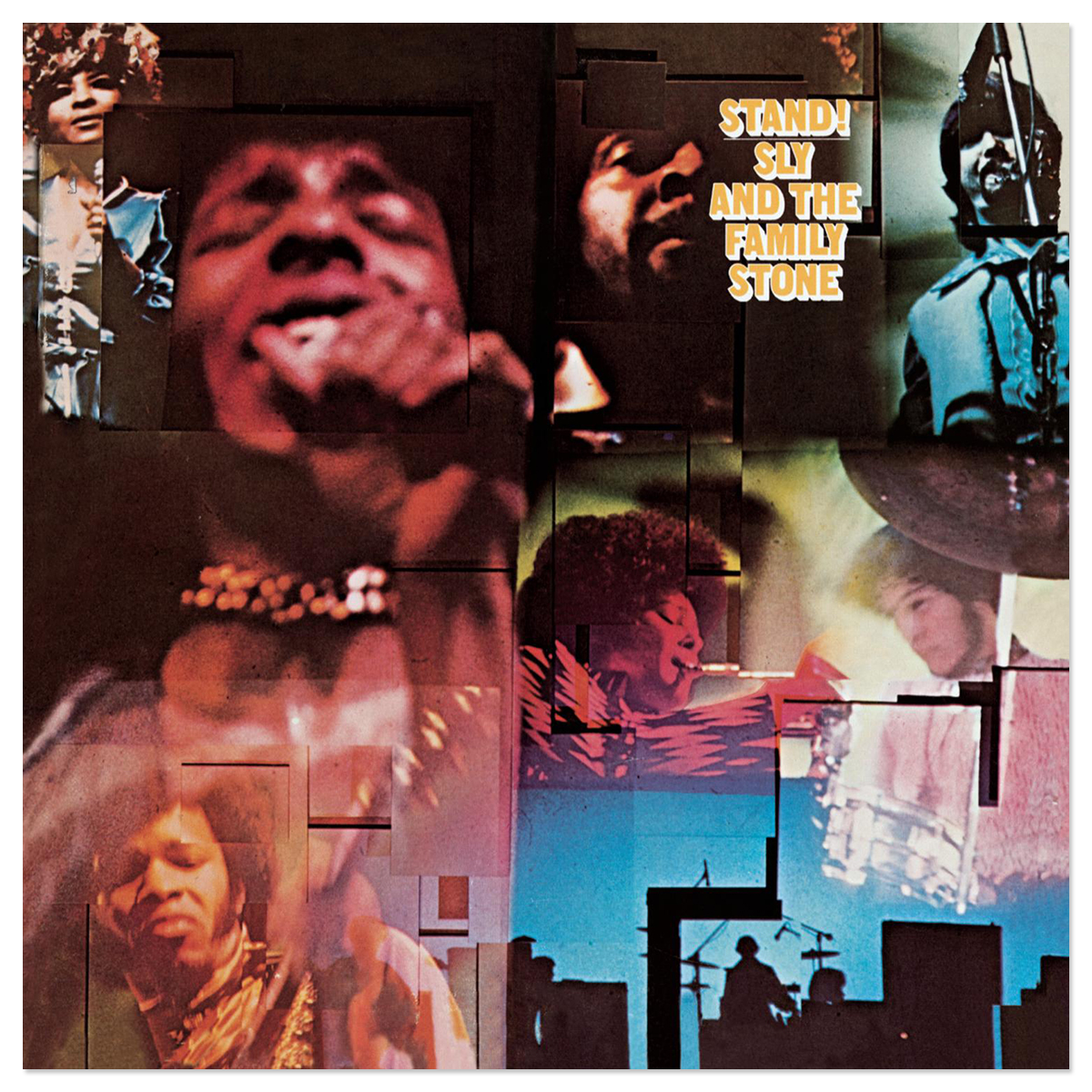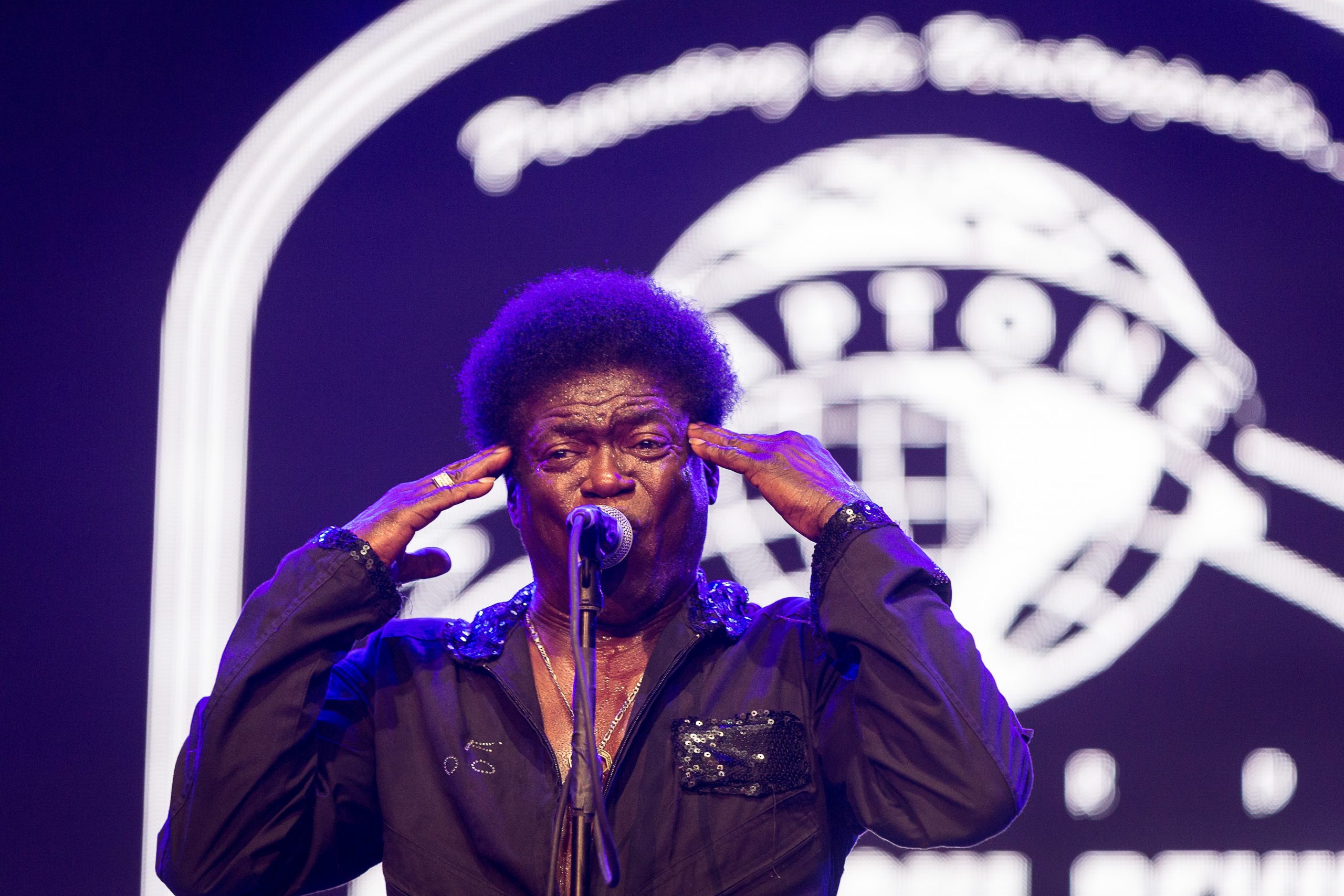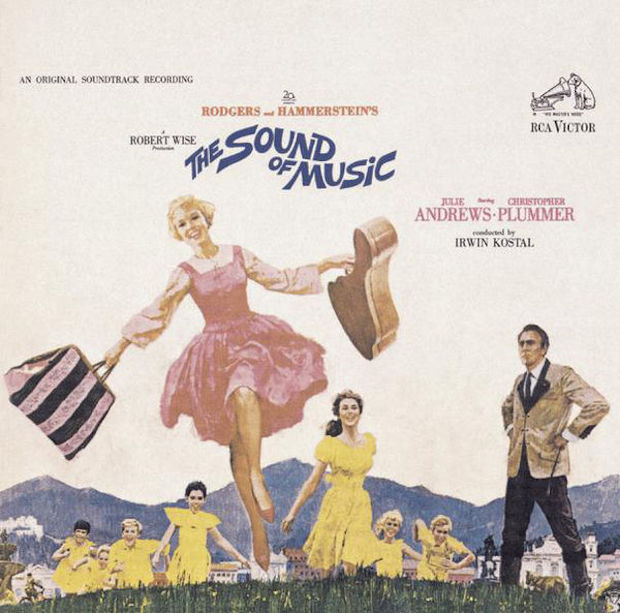Flip over "Sunny Afternoon," one of the finest singles cut by the Kinks in the upward sweep of a long, long creative peak, and you might be convinced that the 7" is a double-A side. "I'm Not Like Everybody Else" found its way into a good stretch of great Kinks UK non-album B-sides -- followed by "Big Black Smoke," "Act Nice And Gentle," and "Mr. Pleasant" -- but it wound up enduring as its own thing. And that's thanks to a couple different facets: the fan-favorite oddity of it being one of the few songs written by Ray Davies but sung by his brother Dave, the switch between the subtly composed instrumentation on the verses and the wham wham wham direct simplicity of the chorus like encroaching maturity battling with roiling teenage frustration, and the simple fact that it's just a straight-up classic of nonconformist sentiment.
And here comes the irony: a bunch of bands liked this nonconformist sentiment and wound up doing their own version. There's a popular sort of phony gotcha that self-described "normal" people like to level at nonconformists, typically ones that belong to identifiable subcultures like goths or heshers or whatever still passes for "hipster" nowadays: if you're all so unique and nonconformist, how come you all look and act like each other? Ignoring the fact that the nonconformity in itself is still against a default mainstream overculture -- a goth/hesher/hipster being identifiable as such means they're still operating outside the basic strucutral boundaries of your day-to-day basic (normcore be damned) -- those nonconformist impulses typically remain even when the entry-level signifiers that position you in the midst of an identifiable subculture are refined into more nuanced attitudes as you grow older. And sometimes you don't even need to articulate why you don't feel like everybody else -- it's just this intangible unease that runs through you. So here are eight different ways of trying to make sure that unease is known, and hopefully sympathized with.
The Chocolate Watchband (1968)
Conventional garage-reactionary wisdom (such as it is) likes to hinge on the idea that psychedelia dulled the snarling edge of mid-'60s rock 'n' roll that the post-Kingsmen wave of screaming teenage delinquents ushered in earlier in the decade. Anyone selling you that bill of goods is a numbskull who should be summarily ignored, because time spent paying attention to them means time not spent listening to groups like the Chocolate Watchband, a Los Altos group with a constantly shifting lineup but a consistent tendency to maintain a serrated edge even when they got their trippiest. A total RIYL if you're into their two-generations-later Bay Area acid-garage mutant offspring like Ty Segall and Oh Sees, their first two albums -- 1967's No Way Out and 1968's The Inner Mystique -- are both excellent go-tos for earlier manifestations of those particular vibes even if both albums were recorded by significantly different personnel. (Side A of Inner Mystique, in fact, was entirely recorded by a group of ringers.) Their version of "I'm Not Like Everybody Else," one of a handful of tracks on the album recorded by the No Way Out-era band before they splintered into pieces, is faithful enough to the Kinks' original stripped-down and surly arrangement, but David Aguilar's lead vocal one-ups (or 10-ups, really) the alienated scowl that Dave Davies only saved for the chorus and lets it seethe through the whole thing.
The Sacred Mushroom (1969)
https://youtube.com/watch?v=ipL_YgizKr8
"I'm Not Like Everybody Else" became a big enough deal in the Chocolate Watchband's repertoire that its graduation from B-side to potential standard gained a bit of momentum. Not enough to cover the Earth on some Sherwin-Williams-ish à la "You Really Got Me," sure, but enough that hearing it reinterpreted wasn't a major outlier. Still, the highest profile it got post-Watchband/pre-power pop revival was from a group called Sacred Mushroom, a band out of Cincinnati featuring singer Larry Goshorn -- better-known for joining Pure Prairie League after the Scott Fuller-sung "Amie" was cut but before it became a hit. (Then he left the group, was replaced by Vince Gill, and the group scored another hit with "Let Me Love You Tonight," so go figure.) For a band whose name holds the promise of all kinds of wigged-out psilocybin-based outlandishness, Sacred Mushroom are a bit more mellow than they suggest on the packaging: Goshorn's lead is far more reflective than abrasive -- on the chorus, he sounds more like he's pleading for a fair shot at being himself instead of just asserting it knuckles-first -- and the instrumentation's additional flourishes tip the scales from Kinks to Byrds. The version's big draw is that right around the halfway point, they take what would otherwise be the climactic, song-ending reprise of the chorus and use that as the transition into a noodly dusk-of-psychedelia guitar solo that wanders pleasantly if familiarly -- not revolutionary as far as psych goes, even in the genre's waning years, but it's still nervy enough to unsettle the squares.
Jimmy And The Boys (1979)
I want to make it clear what you're both seeing and hearing, just in case you need somebody backing you up on this: Yes, that is a version of "I'm Not Like Everybody Else" performed in a sort of disco/post-punk style à la "Heart Of Glass" by a man in kiwi-smuggler tights with electrical tape over his nipples like some kind of mirror-universe Wendy O. Williams. Jimmy And The Boys were a Sydney-based new-wave/shock-rock/gonzo-mutant band that had a brief but giddy run weirding out Australians with a popular stage show somewhere between Alice Cooper rock-show spectacle and guerilla theater; their primary braintrust included contortionist frontman Ignatius Jones and drag queen keyboardist Joylene Hairmouth. And their "I'm Not Like Everybody Else" was the debut single that put them on their path to, if not stardom, then at least outrage and notoriety; an homage that doubles as a warning to the unwary and a threat to the complacent. If this leadoff cut from namesake album Not Like Everybody Else! doesn't convince you -- and with Jones wailing like Richard III on PCP, shrug it off at your own peril -- then don't say you weren't warned when a few minutes later you're dealing with a spectacularly depraved S&M anthem like "Butchy Boys" or the gore-horny "Vampire Love." Inexplicably enough, they had an Australian top ten 10 with 1981's my-baby's-in-the-nuthouse ballad "They Won't Let My Girlfriend Talk To Me," written by Tim Finn of Split Enz and done up in a '50s pop throwback style that diverted from their usual hard-edged raucousness while still preserving at least a bit of their unnerving kitsch. They broke up not long after, ostensibly due to burnout from maintaining their elaborate stage shows, but they left a smoldering trail of wreckage behind them that took longer to clean up than their relatively brief career took to get going, so call it a net positive.
Chris Spedding (1980)
https://youtube.com/watch?v=D33V3psIQeA
Session schlepper turned punk cult hero Chris Spedding had already appeared on albums by Jack Bruce, John Cale, Brian Eno ("Needles In The Camel's Eye"), Elton John, Harry Nilsson ("Jump Into The Fire"), and, uh, the Wombles by the time he'd reinvented himself as a solo artist with his 1975 single "Motor Bikin'." The vintage rock throwback hit was followed up by a self-titled solo album that positioned him as both a rowdy revivalist and an early champion of the up-and-coming punks 10 years his junior -- he famously produced early demos for the Sex Pistols -- and although he was still more of an underground hero than a chartbuster at the turn of the '80s, his rejuvenation still carried through loud and clear. Like Jimmy And The Boys, he released an album both opening with and named after "I'm Not Like Everybody Else," and just a year after the Aussie maniacs' debut -- but it couldn't be much more different. It almost sounds mannered, really, foregoing that famous ascending-and-tumbling six-note guitar opening for a "Be My Baby" drumbeat and a retro-pop fanfare, while his singing is both arch and romantic at the same time in a way that siphons all the urgency out. And for someone who was briefly rumored to be the man who actually played Steve Jones' parts on "Anarchy In The UK," the guitar sounds weirdly bloodless.
Camper Van Beethoven (mid 1980s/1993)
The indie-folk-ska-etcetera miscreants of CVB have always been good for a ridiculous cover or three, whether it's playing with all the fun noisy bits in Pink Floyd's "Interstellar Overdrive" or weaving dizzily through a take on Black Flag's "Wasted" that's twice as long and twice as true to the title as the original. But they can be reasonably straight-faced, too, like they were on their most well-known 120 Minutes crossover, a version of Status Quo's "Pictures Of Matchstick Men" that gave alt-rock one of its best fiddle performances and damn near outdid Tom Petty at his own Americana game. That's what makes their "I'm Not Like Everybody Else" so weird, at least for them: Recorded sometime during their mid '80s heyday and released on the postmortem Camper Vantiquities in '93, it's not too transformative or iconoclastic -- it's largely just all the cues from the Kinks original dialed a couple notches closer to alt-country, and David Lowery's cool-and-collected delivery works far better in the verse than the chorus, as he asn't yet mastered the sort of yelly oomph that made later Cracker classics like "Low" such big alt-nation staples. It ramps up real nice towards the end, though.
Television Personalities (1994)
Television Personalities were always one of the great underheralded punk-era veteran groups -- maybe because their attitude towards the prevailing trends was always a little gun-shy; they didn't feel the impulse to overplay the whole snarls-and-safety pins schtick like the part-time punks did and wound up outside the narrative in their own way. Being tongue-in-cheek nostalgic for '60s pop culture and casting a winking eye towards the trappings of their youth meant they tended to lean somewhere between freakbeat and full-blown psych, in ways XTC had to create an entirely new alter ego to pull off, only to miss out on the peak C86-era UK indie they inspired after lineup instability and label woes left them rudderless for most of the decade's second half. They staged a comeback of sorts starting with 1989's Privilege, with founding member/main songwriter/lead singer Dan Treacy rounding out a trio with bassist Jowe Head and drummer Jeffrey Bloom, but the '90s saw Treacy struggle with both drugs and depression to the point where he spent six years across the turn of the millennium on a prison boat for shoplifting. I bring up all those hard-luck low points mostly as a background explanation for why this half-ramshackle, almost harrowing version of "I'm Not Like Everybody Else" feels like it has a discomforting edge to it: confess all my sins like you want me to, and all that. It sounds like the stress of someone who's forgot how to cope with the inability to catch a break, and only the fact that Treacy got the opportunity to straighten his life out again after leaving prison keeps this one from sounding unintentionally tragic.
Boss Hog (1996)
Jon Spencer's third-most-famous band after Blues Explosion and Pussy Galore is arguably his most abrasive, though by the time they jumped from Amphetamine Reptile to Geffen in the mid '90s they'd tidied themselves up just enough that they could fit reasonably well on the soundtrack to a Richard Linklater movie -- even if that movie, SubUrbia, was in itself a deep examination of Gen X existentialism bordering on the nihilistic. (It's the kind of movie where one character retorts to another character's gaze into the void with the line "If it's all so fucking futile, what the fuck are you so fucking upset about, fuckhead?") Their emery-grit take on "Everybody Else" throws two big middle fingers up for the cause of defiant nonconformity: One, the lead comes from Cristina Martinez, who not only takes the song out of the usual young-man's-angst territory but gives it a real taunting quality that's no shame and all pride. And two, the arrangement feints at keyboard garage fuzz on the verse but goes full hardcore breakdown on the chorus before perfectly merging both notions into the kind of sound that makes you wonder why more crossover thrash bands never picked up a Farfisa.
Beechwood (2018)
Brooklyn's Beechwood are one of those bands that might be sorely mistaken for a trend-hopping buzz group if they landed in some other era -- assuming you can figure out what era it is from song to song, since they run a pretty wide gamut of scuzz from garage to glam to punk to indie that's not that easy to date. As things go right now, that sort of noise is probably too niche for Apple commercials and thinkfluencer party soundtracks, so they can probably be taken at their sharp-dressed-dirtbag surface value, what with said surface being vaguely oily and possibly flammable. When Gordon Lawrence's voice shifts from an almost shoegazy whirr to a sawblade growl on the chorus, "I'm not like everybody else" means "my clothes are stolen and the cops beat us up." Which, as far as rock bands go, is more than what just about everybody else could say.






